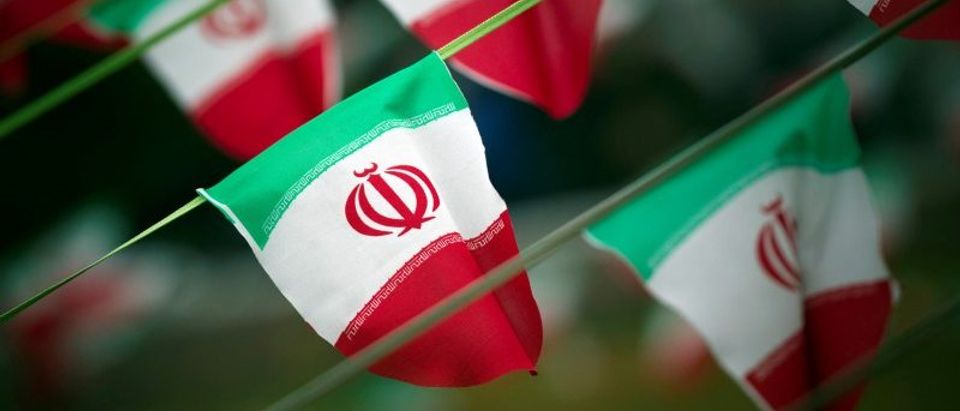The War for Washington
In sports, a game changer or event is an athlete or play that suddenly changes the momentum and perhaps outcome of a contest. Trump has an opportunity to be a game changer and tilt the outcome in favour of the Iranian people and away from Tehran and its war against them.
There’s also war for Washington between the Iranian regime and its main opposition—the National Council of Resistance of Iran (NCRI), which acts as the parliament-in-exile. Its main unit the—People’s Mojahedin Organization of Iran/Mujahedeen-e-Khalq (PMOI/MEK) is the largest and best-organized Iranian opposition movement with the NCRI coalition.
The war for Washington is between the Iran lobby and an organization representing the Iranian people. Consider the letter from the National Iranian American Council (NIAC) in favor of the Iran deal. Organizers of that letter are apologists for Tehran who lobby on its behalf.
While the Obama administration provided an entree into the White House for NIAC, it is very doubtful that Team Trump will do the same. Rather the NCRI is more likely to receive favorable treatment, e.g., because of its policies are against the Iran deal, an approach that aligns with the incoming administration.
Nevertheless, the new team will have an Iran problem. What to do about Iran.
The nuclear deal did not do the magic that its proponents promised and Tehran’s nefarious conduct at home and throughout the region continues unabated. According to Human Rights Watch, “In 2016, Iran is yet again the regional leader in executions – at least 230 – while it continues to be a laggard in implementing illusory penal code reforms meant to bridge the gap with international standards.”
There are at least five ballistic missile tests (in violation of the spirit of the nuclear agreement). In this respect, on July 20, 2015, the UN Security Council adopted Resolution 2231, which reinforced the position of the United States about Tehran violating the spirit of the deal. In addition, Washington said it would maintain its own sanctions against Iran, which supported terrorism, destabilized the region, and continued to violate human rights.
With respect to the relationship between the Obama administration and Team Trump, The Wall Street Journal interviewed Mark Dubowitz, executive director of the Foundation for Defense of Democracies, a leading opponent of the Iran deal. The Dubowitz view shared by the author is that any unilateral action on the part of the Obama administration would only raise the political pressure on the Trump administration to move quickly to reverse the accord. Specifically,
The perception that Obama jammed Congress and the American people with a unilateral [steps about the] Iran nuclear deal is what has undermined the deal’s legitimacy in the first place.
In addition, Iran stokes the flames engulfing Yemen in Tehran’s proxy war against an American friend, Saudi Arabia. Tehran sustains a leader in Damascus guilty of major war crimes against his own people nurtures and sponsors terrorist groups in Iraq and Lebanon, including the notorious Hezbollah.
Iran shares responsibility for the rise of the Islamic State; this phenomenon was cynically facilitated by Syrian dictator Assad and then-Prime Minister Maliki in Iraq to divert the focus from their own divisive sectarian actions, supported by Iran and its proxies.
Iran simply cannot be ignored. So how are we going to break the stalemate, when it comes to Iran?
The key point is to realize and appreciate the fact that Iran policy is not binary, i.e. you either kiss the ayatollahs’ hands or break them. The missing key is engaging with the Iranian opposition.
The Way Forward
Enter the NCRI that credibly seeks a nonnuclear Iran, one free of weapons of mass destruction.
Careful academic research and analysis over the years demonstrates that the Iranian resistance is the single entity feared most by the rulers in Tehran: On one hand, the NCRI directly challenges the religious claim of authority that the ayatollahs use to exercise and maintain political power. On the other hand, the NCRI popularity and appeal grows among Iranian youth who are crying for freedom. As such, Tehran resorts to massive disinformation and smears the NCRI.
Forty prominent U.S. national security officials in the past four administrations underscored in a policy initiative in 2015 that it is time to break the stalemate on Iran by implementing some of the following steps:
- Iran’s destructive role throughout the region must be curbed and deterred. Far from being part of the solution, Iran is a major part of the problem. There should be no direct or indirect cooperation with Iran under the pretext of fighting the Islamic State.
- Washington should be more vigilant and vocal about the serious human rights abuses by the regime that continue inside Iran. During Hassan Rouhani’s tenure as President, illicit arms trafficking continues unabated. A successful policy toward Iran and the Middle East must be cognizant of these realities.
- Engage with the democratic opposition. It has been the missing piece of US policy for many years under both Republican and Democratic leadership. The new administration should engage in respectful dialogue with the Iranian opposition, consistent with our country’s policy of dialogue with all political groups. The wishes of the Iranian people and their desire for change must be taken into consideration.
By taking these three steps as President, Donald Trump has an opportunity to be a game changer and tilt the outcome in favor of the Iranian people and away from Tehran and its war against them.
Raymond Tanter is a former Member of the White House National Security Council staff and Personal Representative of the Secretary of Defense to arms control talks in the Reagan-Bush administration.


